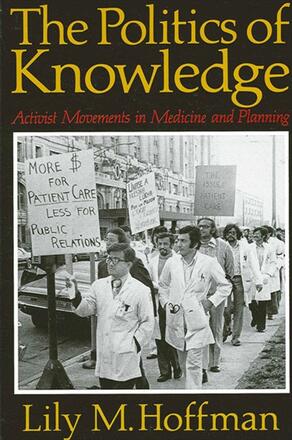
The Politics of Knowledge
Activist Movements in Medicine and Planning
Alternative formats available from:
Description
In this book the author examines the question of the compatibility of politics, policy-making, and professional work. Based on nineteen case studies of organizations, Hoffman looks at "what happened" as doctors and planners set out to redistribute services to minorities and the poor between 1960 and 1980.
Lily M. Hoffman is Assistant Professor at the Eugene Lang College of the New School for Social Research.
Reviews
"Dr. Hoffman's important work is one of the few empirical studies which focuses both on the dynamics of social movements and on conflicts over professionalization, especially on the role of knowledge as a political force." — Robert R. Alford, Distinguished Professor of Sociology, The City University of New York
"Hoffman's penetrating analysis of the confrontation between professionalism and activism is a much needed corrective for the overly enthusiastic hopes for each change in the professions, as well as for the equally enthusiastic faith in those professional mystiques that exist mainly to uphold occupational self-interest. An important book for social scientists, professionals, and activists of all kinds!" — Herbert J. Gans, Robert S. Lynd Professor of Sociology, Columbia University
"Hoffman's book is a major effort to come to grips empirically and theoretically with one of the central issues of our time—the endemic tension between professionalism and democratic values." — Susan S. Fainstein, Professor of Urban Planning and Policy Development, Rutgers University
"Very little scholarly work has been done on the powerful effects that the protest movements of 'the Sixties' had on the practice and self-understanding of professions. The felicitous choice of medicine and planning shows, behind the substantial differences in the effects of activism, that professionalism is built on a common core: experts cannot allow for long challenges to the superior authority of their knowledge, either from the outside or the inside of the profession. The finding that this is the limit of radical reform 'from within' is very important in both theoretical and political terms." — Magali Sarfatti Larson, Temple University